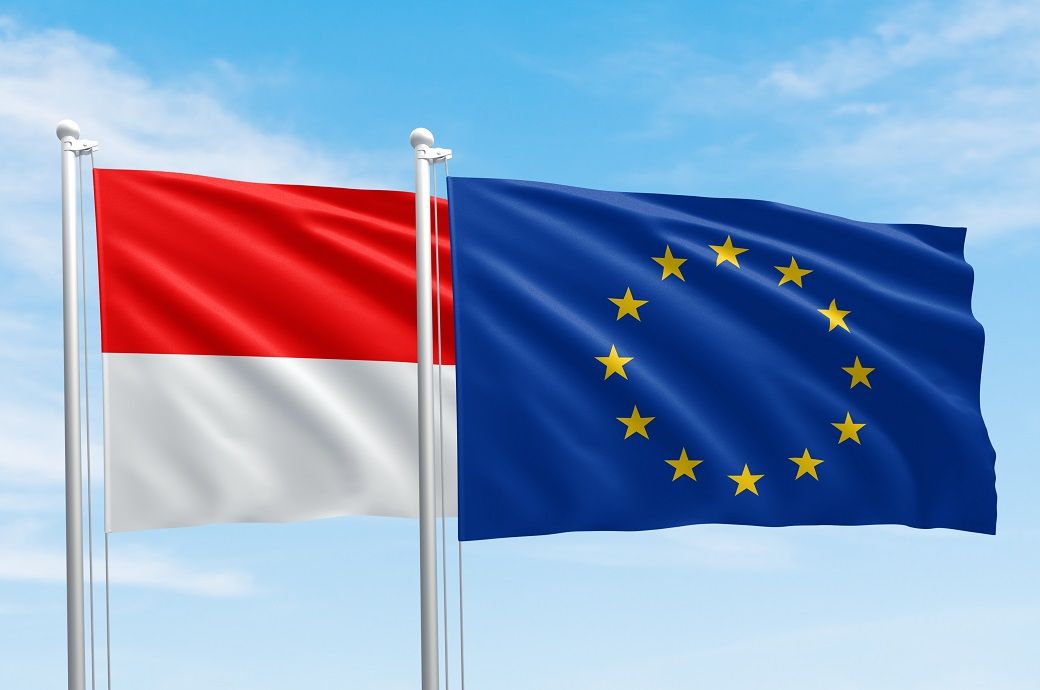
With a consumer base exceeding 450 million, Europe represents one of the most vibrant and profitable markets for readymade garments. Following the path of other manufacturing powerhouses, Indonesia too is turning its gaze towards Europe—and giving powerful momentum to this pursuit is the Indonesia-European Union Comprehensive Economic Partnership Agreement (IEU-CEPA), a trade deal signed by the two parties in September this year, to boost bilateral economic ties, reduce tariffs, and increase investment.
The trade deal is likely to take effect by 2027 following ratification by Indonesia’s legislature and the EU.
This agreement goes beyond mere numbers and clauses—it embodies a vision of an integrated value chain that bridges continents, one that not only enhances supply chain resilience but also places commitments to human rights, labour standards, and environmental protection at its core.
Although the ambitious accord awaits formal ratification, optimism runs high in Jakarta. The chair of the Indonesian Employers Association (APINDO), in an interaction with the media, voiced strong confidence that the IEU-CEPA will catalyse an era of unprecedented economic collaboration.
To the Indonesian business community, the agreement is not merely a trade deal—it is a strategic gateway to broader export markets, an investment magnet, and a means to elevate the competitiveness of the national industry, emphasised the APINDO chair while reportedly predicting that bilateral trade between Indonesia and the EU could soar to a remarkable $60 billion even as Indonesia’s export volume is expected to increase by more than 50 per cent within the next three to four years.
This buoyant outlook is grounded in solid precedent. Even without a preferential trade framework in place, Indonesia’s exports to the EU’s 27 member states reportedly reached $17.34 billion in 2024—a testament to the growing demand in Europe for Indonesian goods, ranging from textiles and footwear to palm oil and manufactured products.
With the IEU-CEPA’s implementation, the foundations for further expansion appear stronger than ever.
Echoing this sentiment, Indonesia’s Coordinating Minister for Economic Affairs, Airlangga Hartarto, reportedly expressed hope that the agreement would magnify bilateral trade by at least two and a half times over the next five years. His words carried both confidence and conviction, painting a picture of a future where Indonesia’s engagement with Europe deepens not just in volume but in value.
Indeed, Indonesia’s trade balance with the EU has already shown encouraging signs of growth, swelling from a surplus of $2.5 billion in 2023 to $4.5 billion in 2024.
Hartarto emphasised that the ripple effects of this economic partnership would extend far beyond trade statistics. The IEU-CEPA, he noted, could directly impact more than 5 million Indonesian workers, creating new jobs, invigorating existing industries, and improving overall welfare by an estimated $2.8 million in economic benefit.
For Indonesia’s labour force—known for its skill, adaptability, and drive—this agreement represents both a challenge and an opportunity to ascend new rungs of prosperity.
Perhaps the most striking advantage, according to the minister, lies in the sweeping tariff reductions the agreement promises. Once the IEU-CEPA comes into force, Indonesian products will enjoy near-immediate access to 90 per cent of the European Union market at zero per cent tariffs, a privilege that could revolutionise Indonesia’s export profile.
Economists forecast that the agreement’s cumulative impact could lift Indonesia’s gross domestic product by 0.19 per cent and stimulate a 0.42 per cent rise in foreign direct investment—a modest yet meaningful stride in a nation eager to reinforce its global economic standing.
More importantly, the accord symbolises Indonesia’s strategic foresight in forging alliances that balance its trade dependencies and anchor its growth in diverse, sustainable partnerships.
ALCHEMPro News Desk (DR)
Receive daily prices and market insights straight to your inbox. Subscribe to AlchemPro Weekly!